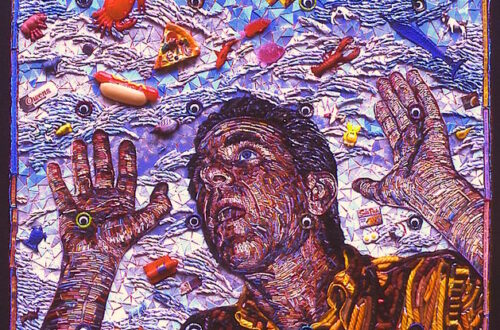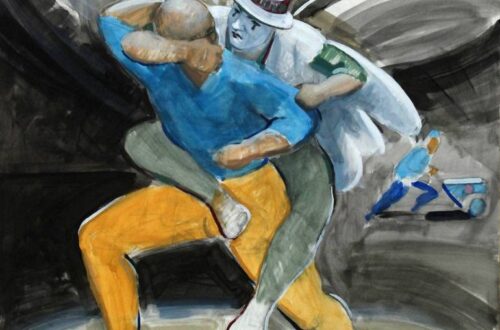-
1 Peter 2:1-12
In 2 Chronicles we read the stories of two kings: Josiah and Jehoiakim. They are father and son but they could not be more different in every way. Josiah became king at eight years old. When he was sixteen he “began to seek the God of his father David” and at twenty he began to purge Judah and Jerusalem of high places, carved idols and cast images. When he was twenty-six he began to repair the Temple and it was in that process that a great discovery was made: the Book of the Law that the Lord had given to Moses. At the news, Josiah tore his robes and said,…
-
1 Peter 1:13-25
This morning we are looking at the second half of the first chapter and I want to mention five or six things here. First, Peter is encouraging the early and scattered church to prepare their minds for action. Literally, he is saying stand “on the balls of your feet” and be ready to move. Don’t be flat-footed in the faith. It’s not enough to know more if we have lost the ability to do something with what we know. It’s not enough to be reflective if we have become exclusively reflective and thoughtful and full of interesting questions that we have lost the desire to accomplish something. We need prepared…
-
Micah 6:6-16
You may be old enough to remember the song “We May Never Pass This Way Again” by Seals and Crofts. While it was not about Sunday School or the Bible it’s an accurate description of what I am thinking as I teach this passage. The last time I taught Micah was 22 years ago – so do the math. While some of the fundamental values of the Christian life are in this text we rarely get around to looking at them. Our focus is on other things – good things – but I’ve always thought this is a place I should have visited more than I have. Like James 1:27…
-
Micah 1
1. History: The kingdom had split between Jeroboam and Rehoboam after the death of Solomon. Ten tribes went to Jeroboam – now known as Israel or Samaria. He was the leader of the party of the people. In Solomon’s final years he used forced labor to build his magnificent monuments and the people resented him. As well, he had strayed from the faith and married women who led him into the worship of other gods. Jeroboam had created a rebellion and Solomon wanted him dead. You might say Solomon had a bumper sticker on his chariot that read: “Not Jeroboam. Not ever.” Jeroboam kept the people from going to Jerusalem…
-
The Woman At The Well
This morning we are going to look at one of the long conversations we find in the book of John. There is the conversation with Nicodemus in chapter 3, the man born blind in chapter 9, and the final conversation on the shore with Peter in chapter 21. Then there’s this one: the woman at the well in chapter 4. All of them are unique but all of them are filled with questions from Jesus and from those with whom he is talking. It’s not parables like Luke or quick encounters like Mark but exchanges with individuals that serve to reveal something about Jesus. They are real people and not…
-
Malachi
This is a book about burdens. The burden of Malachi – for that is what the word oracle means. The burden of leadership and the burden of loving Israel in spite of their failures. The time gap between last week’s study of Haggai and this week is not seven days. It is closer to 100 years. The situation in Israel has changed. Not only have the people rebuilt the Temple but there was a time of spiritual recommitment under Ezra and Nehemiah. But, as almost always happened, when the leadership changed the nation changed. The people have become careless and neglectful. While there was once a sense of anticipation for…
-
Haggai
We don’t know much about the prophet Haggai other than he wrote during a time of international turmoil or what he calls the shaking of the nations. It was a time when there was instability everywhere. Kings had been deposed. Revolutions had overturned dynasties. Power was being shifted constantly and there were warring factions in every country surrounding Israel. It was not the best of times. But in spite of that, Darius the King of Persia, decreed that a number of Jews could return to their homeland from exile in Bablyon. Not many wanted to go back. In fact, it was probably less than 20,000 who left to return home.…
-
Romans 15:14-33
This is our final lesson from Romans – even though it is not the final chapter. But here Paul is wrapping up perhaps the most important of all his letters. If we look back it is hard to believe what Paul has explored in one letter, isn’t it? Look at the topics he has covered: The sinfulness of all men or what we call today total depravity The nature of the world that has turned the truth of God into a lie Natural Law Righteousness by faith Peace with God The transformation of the mind Christians and government The new life of the Spirit The formation of the universal Gentile…
-
Romans 15:1-13
Last week we talked about the weaker brother being accepted by those who had worked through some of the issues that new believers were wrestling with and this week the first part of this passage extends that. Clearly, it was an important issue then as it is now. Some people have liberty in areas that others do not. Some people have issues of conscience that others do not and learning to live with those differences and have respect for them is fundamental to everything Paul wants to encourage in the early Church. It was too easy to accentuate the differences and allow them to become divisions – whether it was…
-
Romans 14
What does it mean to have weak faith? It’s not a bad thing. It doesn’t mean “wrong faith” or someone who does not have saving faith. We have to remember that Paul uses the word for faith in at least two different ways in his letters. There is the sense that we are saved by faith alone – as he says in Ephesians 2:8: “For it is by grace you have been saved, through faith–and this is not from yourselves, it is the gift of God–“. Earlier in Romans he says that Abraham is the father of all believers because his righteousness came through his faith and not his obedience…


